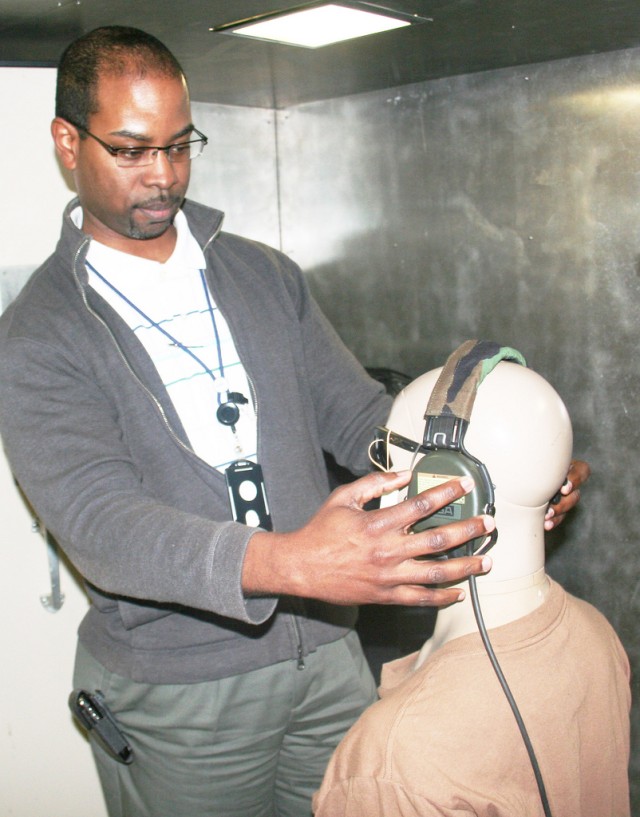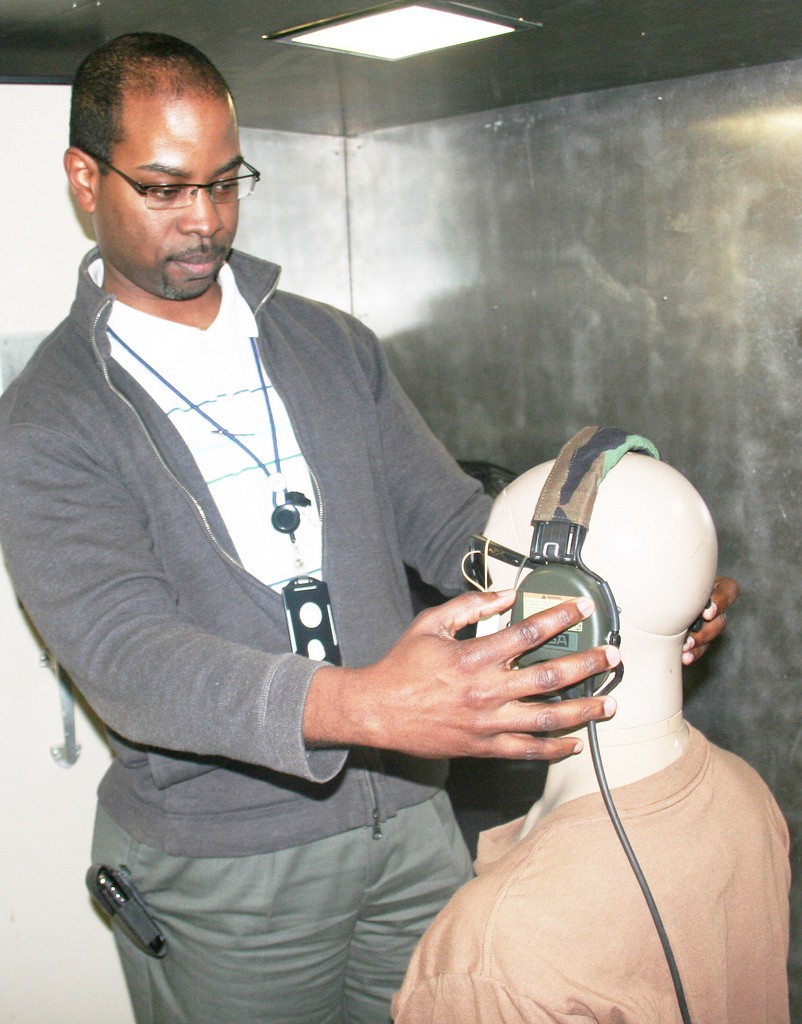Editor's note: In celebration of African-American/Black History Month, the Army Flier is highlighting the accomplishments of prominent leaders of African-American descent.
FORT RUCKER, Ala. -- Soldiers in today's battlefields suffer from various types of injuries, but the two most common are hearing loss and tinnitus, or ringing ears.
Dr. Efrem Reeves fights every day to make sure the number of Soldiers affected by these afflictions decreases.
Reeves, an acoustical engineer with the U.S. Army Aviation Research Laboratory, conducts many research projects in order to determine what hearing problems Soldiers, specifically Aviators, face in day-to-day operations.
Reeves' path to his position has roots in a childhood dream.
A St. Louis native, Reeves grew up in an era when electronic music became popular. He hoped to obtain a job designing electrical instruments.
In order to accomplish this, he attended Prairie View A and M in Prairie View, Texas, and garnered an electrical engineering degree. He attended the University of Illinois for a degree more closely related to his dream, but classes were so few and far between that he picked up a master's in electrical engineering.
While at Illinois, he took a few acoustics courses, which piqued his interest enough to pursue an audiology doctorate at Pennsylvania State.
"I was interested in the way people hear," he said.
His thesis addressed hearing protection and safety, and his first job was with Caterpillar, Inc., in Peoria, Ill. After a year and a half, he moved to Pittsburgh to work at the National Institute of Occupational Safety and Health, where he worked in a position that specifically applied principles he addressed in his doctoral thesis.
While in Pittsburgh, he became "tired of the cold and gloom of the north." A call and job offer from USAARL's Dr. Bill Ahroon provided him an opportunity to leave, and in December 2007, he relocated to Fort Rucker to work for the Army.
Despite plenty of influences that could have pointed him to a career with the Army, Reeves said, "the thought never crossed my mind."
"My dad was an engineer for the Army. It was completely unintentional. It just kind of happened," Reeves said.
Reeves enjoys the work he does, specifically the interaction with people.
"You meet the most interesting people and hear the most interesting stories," he said.
Even though Reeves works in one field, audiology provides many different nuances to study.
"There's never a dull moment. I'm working on several different projects at a time," he said.
Reeves' work does not involve building a product, but most of it ensures current ear protection products work or determines modifications that are needed.
His current project involves eyewear.
"We're trying to find out how eyewear affects hearing protection," he said. "When you wear eyewear, it can create a gap in the seal of earmuffs. We're trying to determine how much that will degrade ear protection."
In his three years at USAARL, Reeves said he is very proud of two projects.
"One project that came up from our friends at Cairns (Army Airfield) was looking to test a helmet and (custom ear protection)," he said. "They wanted a whole battery of tests run in a short time, and we had people who said, 'We can't do it.'
"I was named the primary investigator, and in a very short time, we pulled it together. We did a good job," Reeves said.
Reeves also recalls he and his team received recognition for helping a Fort Campbell, Ky., unit ensure its vehicles provided proper hearing protection.
"We do get some accolades once in a while," he said.


Social Sharing